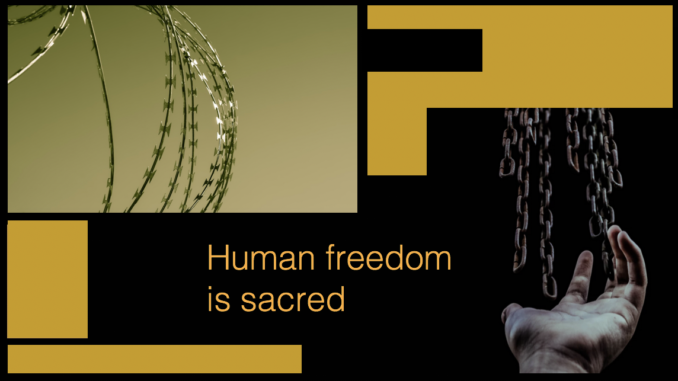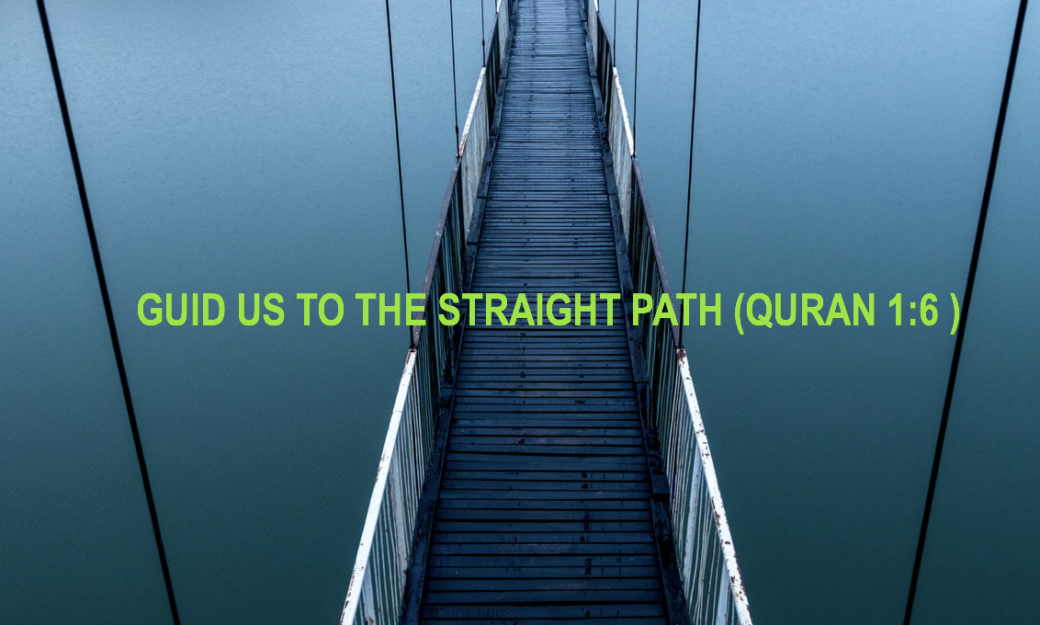
Slavery, a grave violation of human rights
Slavery is a violation of human freedom and equality. Human beings owned by other human beings and used for financial, military, or other self-serving purposes were present in ancient cultures. Slavery was intertwined with the socio-economic fabric of seventh-century Arab culture. Islam initiated a process to eradicate slavery through the Quranic injunctions. We must remember that Islam did not invent slavery. The Quran dealt with this preexisting condition with compassion with a vision for its eventual demise.
The powerhouse for the workforce of the old-time
Ancient societies depended on slavery to provide the workforce for trade, construction, agriculture, everyday household work, or recruiting soldiers. This can be compared to the present-day reliance on employees in keeping economic fundamentals stable and running the economy’s wheel. A sudden complete disruption of a slave workforce without having any alternative system in place would be unworkable, as it would profoundly impact the socioeconomic stability. A progressive transformation was required to eradicate slavery without causing social disruption and anarchy.
“… Estimates of the percentage of the population of Italy who were slaves range from 30 to 40 percent in the 1st century BC, upwards of two to three million slaves in Italy by the end of the 1st century BC, about 35% to 40% of Italy’s population. (Source: https://en.wikipedia.org/wiki/Slavery_in_ancient_Rome)
” Prohibiting slavery in the context of seventh-century Arabia apparently would have been as useful as prohibiting poverty; it would have reflected a noble ideal but would have been unworkable on an immediate basis without establishing an entirely new socioeconomic system..” Jacob Neusner, Tamara Sonn, Comparing Religions through Law: Judaism and Islam, 1999
The blueprint to end slavery

1. Changing the mindset
The Quran upholds the notion of human equality in the sight of God. Prophet Muhammad (SW) preached to the believers that slaves were their brothers in humanity. The believers were expected to show kindness to the slaves as they were kind to their own children.*
2. Sharing the comforts and bearing the burdens
: Muslims were commanded to be gracious to the slaves, feed them with the same food they ate, clothe them with the same quality clothes they wore, and not to give them any task that could be too hard for them. Slave owners were commanded to help the slaves if any task was too hard for them.*
3. Erasing the symbols of human oppression
Prophet (SW) instructed people to stop using the term “slave” and to call the slaves as “my boy or my girl.” Slaves were told not to call their captors “master.” No human can be the owner of another human being. God is the Creator and Owner of all humans, and all humans are equal in His eyes. Quran describes the slaves as “people who your right hand possesses.”
4. Ending the channels of slavery
A common way of getting new slaves was by capturing men, women, and children through raids from the stronger tribes on the weaker ones. Women, children, and orphans were particularly vulnerable to these attacks. Prophet Muhammad (SW) prohibited any practice of enslaving a free man.* Islam closed all avenues to taking new captives except the prisoners of war from a justified war.**

** “…..It does not fit for a prophet to keep captives unless he has battled strenuously on earth. You may desire the fleeting gains of this world-but God desires [for you the good of] the life to come: and God is almighty, wise…” (Quran 8:67)

*Prophet Muhammad (SW) promised that on the day of judgment, he will be personally complaining against three categories of people: one who enslaved a free man, sold him, and spent the money. (Al-Bukhari)
*Prophet Muhammad said: “…your slaves are brothers under your command…feed them from what you eat, dress them with what you wear, do not ask them to do things beyond their capacity. If you do so, then help them…” Bukhari V1 B2 N:29
*”….(Prophet said) ‘He will not enter Paradise who behaves ill to his slaves.’ The Companions said, ‘O Apostle of God! have you not told us that there would be a great many slaves and orphans among your disciples?’ He said, ‘Yes; then be kind to them as to your own children, and give them to eat what you eat yourselves…….. Be kind to slaves as to your own children…” Bukhari
The owner of a slave slapped a slave girl. He was ordered by the prophet to set her free. Muslim: B15 N:4082
5. The Quran offers different options to free slaves
- Freeing slaves out of benevolence. (Quran-47:4).
- Prisoners of war could be freed by prisoner exchange or ransom from the enemies. (Quran-47:4). Ransoms were according to their means.
- Captives earned their ransom by teaching writing to unlettered people.
- Captives were given the right to make contracts with their captors for their freedom. (Quran-24:33)
- Not only were the captors commanded to facilitate slave’s freedom, but also they were urged to help them financially to ease their transition into normal society. (Quran-24:33)
- Resources from Zakah (charity) fund were used to buy freedom for the slaves (Quran-9:60).
- Quran codified freeing slaves as a virtuous act for a believer.

The Quran on slavery
*”…And if any of your slaves ask for a deed in writing (to enable them to earn their freedom for a certain sum), give them such a deed if you know any good in them; yes, give them something yourselves out of the means which Allah has given to you. (Quran 24:33)”
*** “…. Alms are for the poor and the needy, …….for those in bondage and debt; in the cause of Allah; and for the wayfarer: (thus is it) ordained by Allah, and Allah is full of knowledge and wisdom..“(Quran 9:60)
“….Therefore, when ye meet the unbelievers (battle), smite at their necks; At length, when you have thoroughly subdued them, bind a bond firmly (on them): thereafter (is the time for) either generosity or ransom: Until the war lays down its burdens…. – (Quran 47:4 )
”….It is not righteousness that you turn your faces Towards east or west; but it is righteousness to believe in Allah and the Last Day…..to spend of your wealth, out of love for Him, for your kin, for orphans, for the needy……. and for the ransom of slaves; …… ” (Quran 2:177)
“…..Have We not made for him a pair of eyes?
And a tongue, and a pair of lips?
And shown him the two highways?
But he has not attempted the steep path.
And what will explain to you the steep path?
(It is:) freeing the slave;
Or the giving of food in a day of hunger
To the orphan relative,
Or to the indigent (down) in the dust…………
……Such are the Companions of the Right Hand……” (Quran 90:8….. 90:18)
“…Allah has bestowed His gifts of sustenance more freely on some of you than on others: those more favored are not going to throw back their gifts to those whom their right hands possess (slave), to be equal in that respect. Will they then deny the favors of Allah? (Quran, 16:71).
” ….And they feed the poor, the orphan and the captives, for love of Him (saying): We feed you, for the sake of Allah only. We ask no reward nor thanks from you..” (Quran 76:8-9)
“…Serve Allah . . . and do good – to parents, kinsfolk, orphans, those in need, neighbors who are near, neighbors who are strangers, the Companion by your side, the wayfarer (you meet), and what your right hands possess [i.e., slaves] . . . (Quran 4:36)
A world 1400 years ago
Arabia in the seventh century lacked the available resources to feed, maintain, and humanely rehabilitate their prisoners of war. The prisoners of war were executed or sold or distributed to the soldiers as slaves. This was a world 1400 years ago, and these were the norms of the time. Islam opted for a process where captives were housed with Muslim families. They were given the right to make a contract with their owners for their freedom. Their dignity as a human being was assured. The Quran recommended that believers free the slaves as part of their worship and prove their piety and righteousness.
An issue of all civilizations
Slavery was not an issue just for Muslims. It was a problem for all communities and civilizations that needed to be eradicated. The wisdom of the Quranic approach to end slavery lies in recognizing that slavery needed to be phased out over time to avoid the effects of its sudden absence and withdrawal. The Quran gave the message of enlightenment that slaves are equal humans and deserve to be free. This was the first of its kind in an organized religious-cultural tradition. The spirit of Islam was that the society had to be kind and dignified with the existing slaves and move forward with freeing them while the world transitioned from slave dependence to a world without slaves. The Quran initiated that process and pushed humanity to that moral revolution.

How the Muslim nations failed
From the onset of Prophet (SW) and early Muslims pioneered in giving slaves back their freedom. They bought slaves to free them. They freed their prisoners of war in thousands. It was a tragic and historic failure of subsequent Muslim nations that they failed to continue that trend and follow through with the Quran’s spirit. Muslims continued practicing slavery for centuries to come, rather than freeing their slaves as the Quran demanded of them. Had they followed the Quranic commands and the Prophet’s (SW) ideals, the institution of slavery would have been abolished from Muslim lands many centuries ago.



Be the first to comment